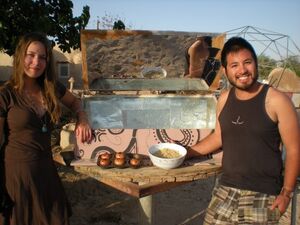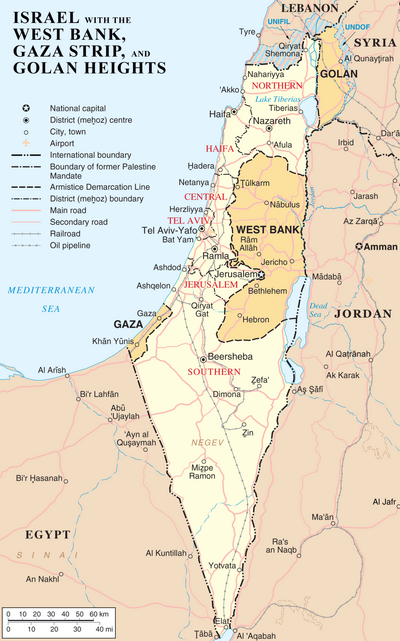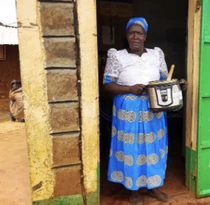|
Last edited: 8 September 2016
|
Events
Featured international events
- 4-6 June 2024 (Bridgetown, Barbados): Sustainable Energy for All Global Forum - The event will be co-hosted by Sustainable Energy for All (SEforALL) and the government of Barbados. It is a platform for government, business and finance leaders, entrepreneurs, and youth and community representatives from around the world to come together to broker new partnerships, spur new investment, and address challenges at the nexus of energy, climate, and development. More information...
Online events
- NEW: Thursday, 18 April 2024 (2:30pm-3:15pm EDT), (Washington, D.C., USA): ESMAP Spring Meetings Knowledge Café: Clean Cooking at the Heart of Energy Access - Join ESMAP for this exciting knowledge-sharing opportunity, which will showcase the role of clean cooking as a key part of energy access and energy transition. Presentations by René van Hell, Director of Inclusive Growth, Ministry of Foreign Affair, Netherlands, Dr. Kandeh Yumkella Chairman, Presidential Initiative on Climate, Renewable Energy and Food Security, Sierra Leone, and Chandrasekar Govindarajalu, Practice Manager, ESMAP, World Bank. In-person attendance at World Bank Atrium, MC Front Lobby is for Spring Meetings registrants only. However, you can watch the event online
Requests for proposal
- Decentralized Renewable Energy Solutions utilizing Solar and Bio-Energy - Sustainable Energy Technologies and Assessments of ScienceDirect, is requesting guest-author submissions. The special issue, VSI: DRES is devoted to publishing research articles reporting the innovative designs and design interventions in solar thermal and bio-energy for decentralized energy systems (DES). It includes i) new and novel designs of prototype or commercial devices and technologies, their development, modeling and simulations and experimental validation; ii) innovations for processes, techniques, utilization, and applications; iii) novel use of materials for improving efficiency, performance, techno-economic feasibility, and sustainability and iv) research findings addressing the socio-economic, health and safety impacts, and life cycle assessments leading to proposing novel devices for DES. The Deadline for submission is 31 July 2024. More submittal information...
- See also: Global Calendar of Events and past events in Israel
News
Research
The National Physical Laboratory of Israel (NPLI) in 1996 experimented with the building of a solar concentrating type cooker. The design and materials used created an efficient cooker.
The promoting group was initially operating on the assumption that any solar cooker should lend itself to construction in local villages, largely around cost issues - that is, the intent was to serve the poor of the nation. That goal put considerable constraint on the venture, leading Harry Tabor, author of an article in the proceedings of the Varese Conference (1999), to suggest that while the appliance could be made or assembled locally, the critical elements could only be made in central shops (or even overseas). The NPLI research was limited to parabolic cookers, but the article argues that the principle pertains to box cookers as well. As example, glass cut to appropriate size(s), reliable and weather resistant hinges, bright aluminum in sheets, etc. could be prepared in regional workshops, while the insulation materials, wood, paint could be purchased locally.
Several companies and universities are continuing research on improving the solar oven, notably among them are the famed Weizmann Institute and Schatz Laboratories for Solar Energy Development.
History
Beginning with ancient times, Israel has a history of developing solar heating, with a law to have solar heat collectors for hot water on every building. In fact, more than 83% of houses are with solar water heating installed on the roofs. Luz, one of the largest solar heating companies in the world in the late 80's until 1999, and today two of the largest solar heating energy companies in the world are both located near the city of Beit Shemesh (meaning in Hebrew: The House of the Sun): Sollel and Luz II. Also, a large portion of the Weitzman institute consists of one of the largest solar collector tower and basin in the world.
Solar cooking has recently become quite common, but in some places like the city of Eilat, there is no need to do anything in order to cook foods directly with the sun, and frequently every summer, when temperatures reach 40 degrees celsius and more, the news show how people fry an egg on a car's roof.
In recent years, solar cooking has become more prevalent, and in almost all Hebrew and English forums that deal with sustainable systems, there are requests and sharing of information, with new blogs and websites dedicated to the subject. Climatic circumstances are close to ideal, and various initiatives including government sponsored advertising. Call (in Hebrew) for Israeli citizens to use solar ovens and NGOs have been advancing solar cooking. Rachel Andres the Bronfman prize winner and originator of the solar cooking initiative in Darfur, was closely followed by Israeli media, with this project involving many Jewish communities worldwide. The images in the Israeli media, as well as the article content, left the impression that this was an Israeli project...
It seems that the invention of using a car sunscreen as a solar cooker was originally posted on the internet first on the Israel Hebrew solar cooking website, and it is possible that the writers were actually the inventors of this idea. (It should be noted that it may be that that website was translated and not the original source. No names are listed on the site.) Public festivals on national holidays recently hold public solar cooking as a standard activity. Also, summer camp solar cooking activities are prevalent. News about these events and activities frequently reach the media, most recently one about a young man inventing a new type of solar cooker (see Reports section).
Solar cooking has been mentioned in the Jewish holy scripts of the Mishna (compiled approx 200 BC to 100 AD) written in Hebrew. The texts refer to the Mishnaic and Talmudic discussions on whether solar cooking was allowed on the Sabbath day (Saturday), - when cooking or creating a fire is not permitted. stating that cooking done by the sun is permitted on the Sabbath. They state that solar cooking is the "produce of the Sun, not produce of man-made fire".
Today in orthodox Jewish "Rabbinic" writings on Jewish rituals, this topic is discussed at length, especially due to the mandatory solar water heaters on every roof in Israel. Several orthodox Ashkenazi Jews many times use the sun as a solution for warming lunch at noon, which otherwise would be prohibited according to their customs. This is only for dry foods, and only if the heat is received directly from the sun rays and not by passing the heat and warmth via any other material (such as warm sand).
A recent Canadian visitor to Israel, Randy Shulman, lived in a southern remote kibbutz for some months, where she attempted to introduce solar cooking to her hosts. The work is only recently concluded and no word has been received of results.
The turning point for the spread of knowledge about solar cooking in Israel may have been the widespread advertising in all newspapers about a family in Netanya, who learned solar cooking from Swiss friends around the year 2003. Israeli solar cooking family in Israeli news.
It is now quite common to see solar cooking at many settings in Israel. (See recent developments, above)
Jewish and Arab cooperation in solar cooking
In Israel there have been several joint initiatives, for learning and practicing solar cooking, especially notable was the northern Israeli religious Jewish Kaditha village solar cooking outing, with Arab teachers from Gallilee, and Palestinian teachers from the Palestinian National Authority studying and then successfully taking it to their communities.
An initiative to bring solar cooking to Bedouins (nomad Arab tribes in southern Israel), was started by Devora Brous, Founder of Bustan NGO, angry at Israeli government attitude and actions towards the Bedouins. These Bedouin tribes are at a dispute with the Israeli government and Jewish establishment on land ownership in the Negev desert area. Bustan a grass-roots NGO is still working with the Bedouin people and solar cooking is used as an alternative to the traditional small fire cooking, as well as being a solution for villages not connected to the electric grid.
Israelis have also participated in teaching Palestinians in the Palestinian Authority about solar ovens, and solar cooking activity. This is usually part of Anti-Israeli establishment activities.
In Bet Shemesh (Literally: Home of the Sun) the local Sustainability Center holds regular workshops showing various types of solar cookers and holds workshops teaching baking and cooking with solar cookers.
- Main article: History of solar cooking
Archived articles
Climate and culture
In the south and eastern desert areas, including cities such as Eilat and villages such as Ein Gedi, temperatures typically reach 40 degrees in the summer days. Solar cooking can be done in these regions on any dark (or sometimes even white) metal or sand. Soldiers and bedouin nomads are known to fry eggs or warm up cans of food directly in the sand, and residents of the cities in these locations, especially in the Arava area, may cook a meal, simply by placing it in the sun, without any solar oven.
In all of Israel, cloudy days account for only 40% of the year at most. In recent years there has been a haze caused mainly by dust from construction with rock covering for most of the buildings, and by polution mainly from transportation. Even so, conditions in Israel are ideal for solar cooking most of the year.
See also
Resources
Construction plans in Arabic
- CooKit
- CooKit variation (made from smaller pieces of cardboard)
- Minimum Box Cooker
- Solar Water Pasteurizer
Reports
English reports
- Angry founder of Bustan, at Israeli government attitude and actions towards the Bedouins, she founded this grass-roots organization
- Jewish worldwide support for Darfur Solar Oven project: Synagogues, temples (synagogues of the Jewish-Reform movement) and other Jewish organizations in the US, and world-wide supporting the project.
- Boy invents solar oven at camp
- Israeli research institute developing solar oven and other solar technologies
- Giant solar ovens Not really part of this site, but actually these are just very large solar ovens. One of the biggest is in Israel, others on this list were created by Israeli companies.
Hebrew reports
- Making a solar oven from a Pizza cover
- Israeli government Ministry of Ecology calls for Israeli citizens to use solar ovens, and to teach about them at schools. Also tells about the Weizman institute solar heating project, which reached 10,000 times the radiance at earth.
Articles in the media
English media
- June 2012: Solar Cooking in the Village of Peace - African Hebrew Israelites of Jerusalem

Solar Seder at Kibbutz Lotan
- November 2008: Solar Cooking Ovens: Another Eco-Solution from the Gaza Strip - Green Prophet
- October 2007: The Joy of (Out of the Box) Cooking
- Rachel Andres, Israeli woman who had solar oven intiative for Darfur women
- Solar cooking lecture at Kibbutz Lotan among other news from solar cooking world.
Hebrew media
- Using a car window cover as a solar oven panel Great invention!
- Some recipies and the claim that solar ovens are originally from Switzerland (at least these people learned of it there).
Web pages
Contacts
SCInet NGO members
SCInet individual members
SCInet manufacturers and vendors
NGOs based in or working in the Israel
- Children and Education NGO site
- Haredim Laseviva (Lit: Worried about Environment, play on word Haredi which means worried) Ultra orthodox Jewish eco NGO
- Shomera - An environmental Jewish ethics field school
- Adam Teva Vadin (Man Nature and Law) the prevailing Israeli environmental NGO
Hebrew pages
- Hebrew page on solar ovens
- Snunit Childrens Education NGO - article on solar ovens
- Ultra orthodox Jews create solar ovens and other eco-projects
Individuals
- Oded from CityTree Tel-Aviv
- Noam, Israeli inventor of electric bike, explains solar oven on his company website



